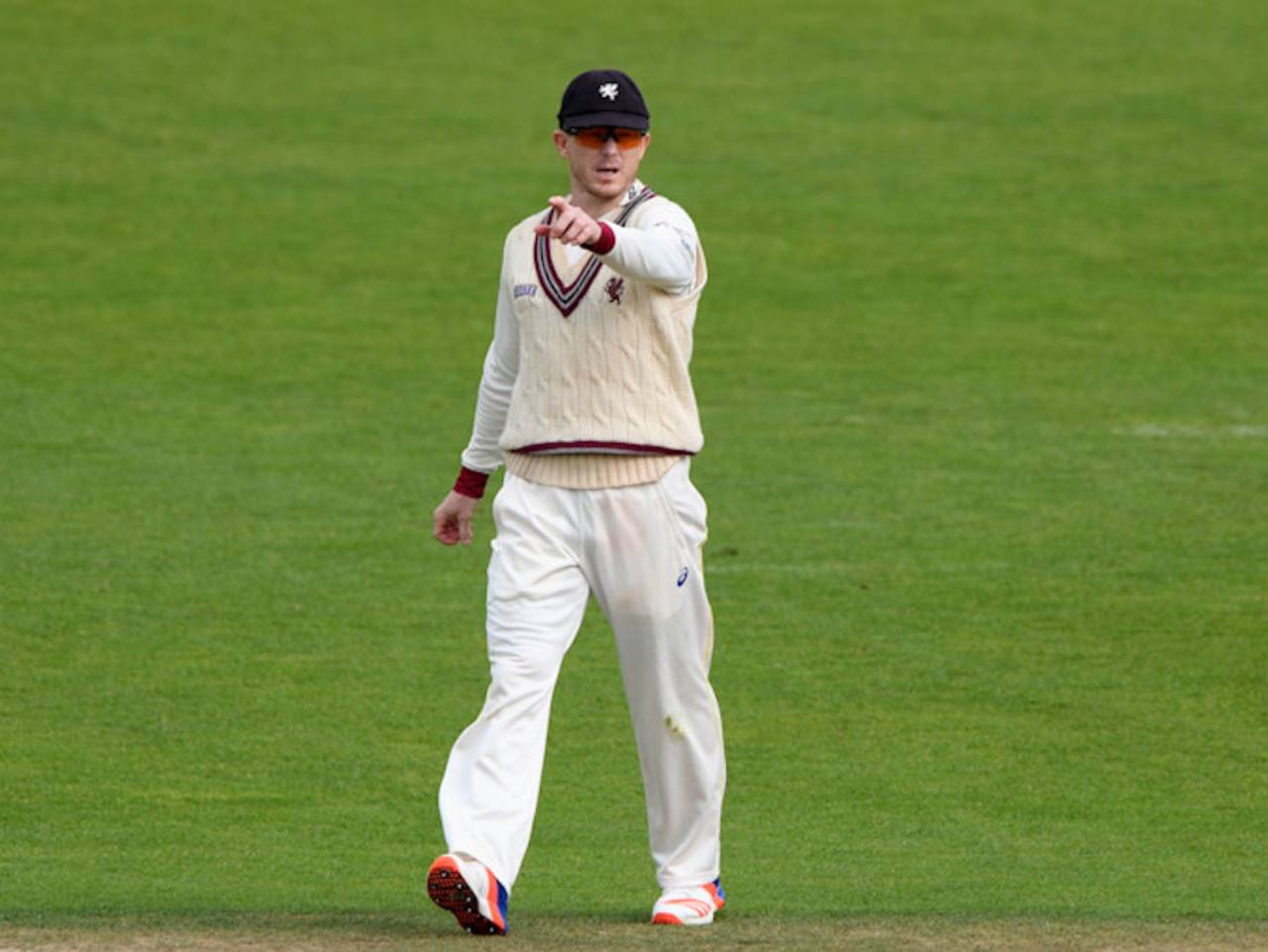'No toss' rule could benefit Australia - Rogers
Chris Rogers, the former Australia opener who announced his retirement last week, has suggested a similar change to the toss regulations introduced in England for the 2016 Championship season could also benefit Australian cricket
Alan Gardner
28-Sep-2016

Chris Rogers said his batting and captaincy had improved while playing on spinning pitches • Getty Images
Chris Rogers, the former Australia opener who announced his retirement last week, has suggested a similar change to the toss regulations introduced in England for the 2016 Championship season could also benefit Australian cricket.
Away teams were given the choice of bowling first or asking for a toss (if they wished to bat), a move designed to discourage teams from preparing green, seaming pitches and give spinners more of an opportunity as games wore on. Rogers led Somerset to second place in Division One - missing out on a first title by four points to Middlesex on the final day - after overseeing the club's switch to playing on turning surfaces during the latter half of the season.
Although Rogers, a regular performer in county cricket for more than a decade, said he felt his game was better suited to playing on traditional English surfaces that aided swing and seam, he was encouraged by his own development against spin, in his final season as a professional, and suggested the experiment could be taken to Australia and the Sheffield Shield.
"I think Australia would benefit from it as well," Rogers said. "The one thing that seems to be happening in Australian cricket, all the wickets there are becoming quite uniform in the way they play. The drop-in wickets, at Melbourne and Adelaide, and then Sydney doesn't play the way it used to.
"So in the end I worry if we're producing players who only really know how to play in a certain type of condition. If it meant that sides were trying to get different types of wickets that might help Australian cricket as well. So I'd like to think that they'd consider it."
Australia's Test side has struggled on overseas commitments in recent years, winning in South Africa, the West Indies and New Zealand but suffering chastening defeats in England, India, the UAE and, most recently, Sri Lanka. The coach, Darren Lehmann, expressed similar concerns about the state of home pitches during the 3-0 loss in Sri Lanka, with questions being asked of Australia's batting and the ability of players to adapt to different conditions.
Discussion of the surfaces produced in Shield cricket has gone back and forth in recent years, with a trend for increasingly bowler-friendly pitches being reversed by Cricket Australia directive.
An experiment with using Dukes balls in the Shield has already been flagged for 2016-17, after Ricky Ponting's call in the wake of Australia repeatedly coming unstuck against the lateral movement achieved by England's pace attack during the 2015 Ashes.
Rogers did express a concern that a shift away from seaming pitches in England might diminish what has historically been a strength - both in terms of bowlers coming through and top-order batsman able to combat the moving ball. But, after signing off his first-class career with a century in each innings at Taunton, he felt that the change to the toss had helped rebalance the domestic game and also provided him fresh learning opportunities as a batsman and captain.
"How to captain spin, that's quite a skill in itself," he said. "I felt my captaincy got better the more we played on those wickets. Everybody's learning, which is great.
"I've never been a great player of spin, I found it really hard, but to get two hundreds in the last game, on a wicket that was turning - I think I was getting better and better, even at this late stage of my career, and that's a good thing as well. It's going to help the younger guys when they go to some of the Asian countries and play there, it's going to be so hard but at least they'll have a little bit of experience."
Alan Gardner is an assistant editor at ESPNcricinfo. @alanroderick